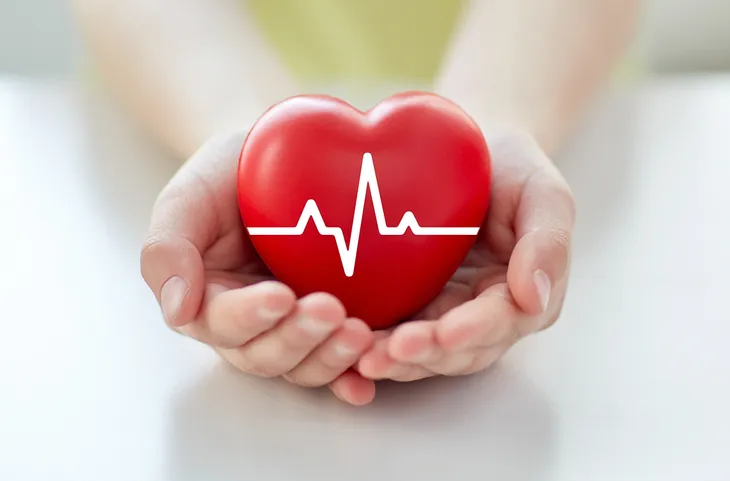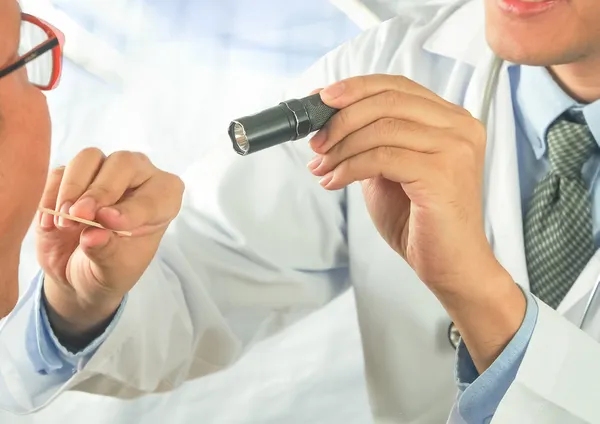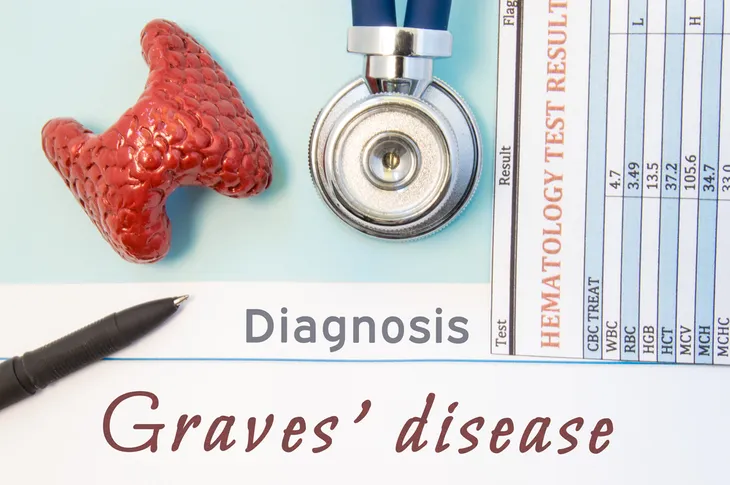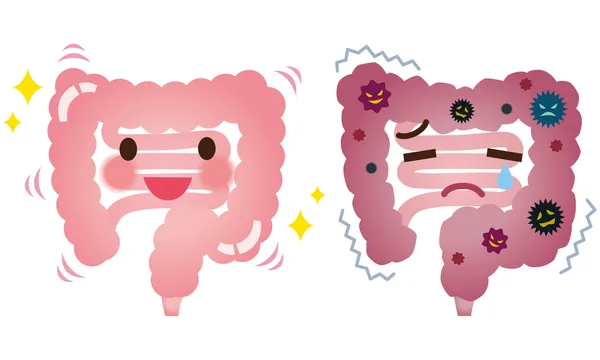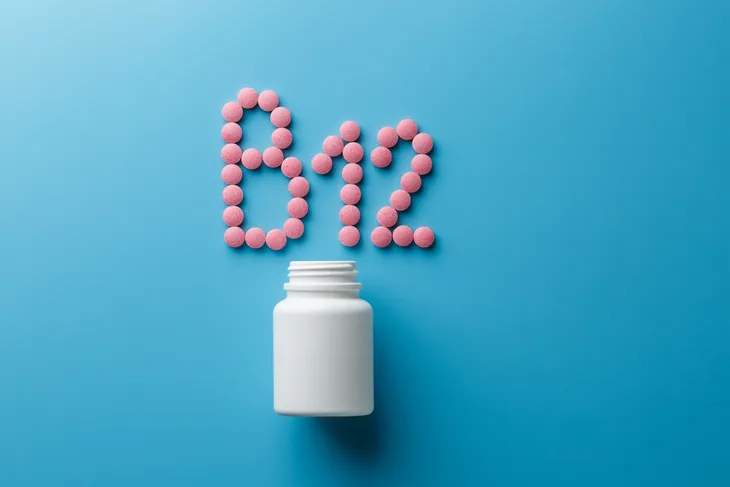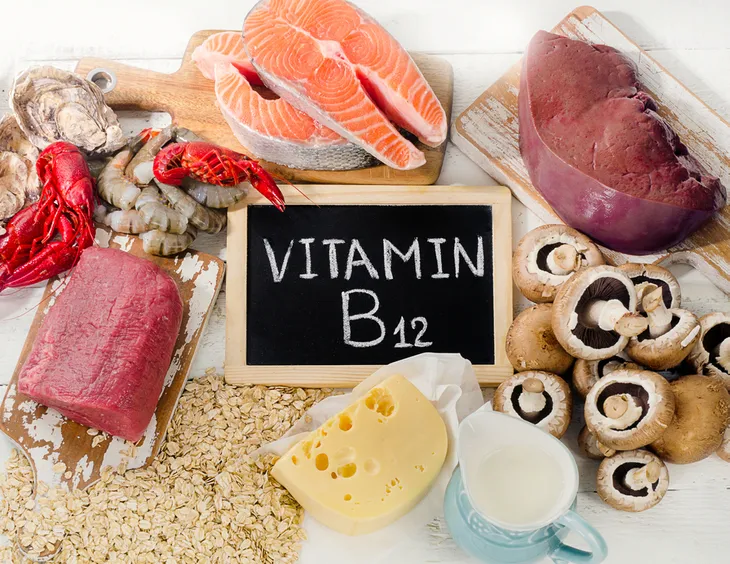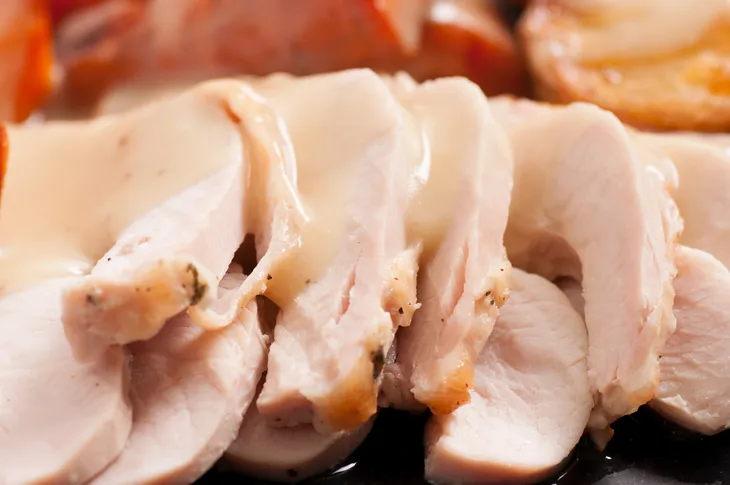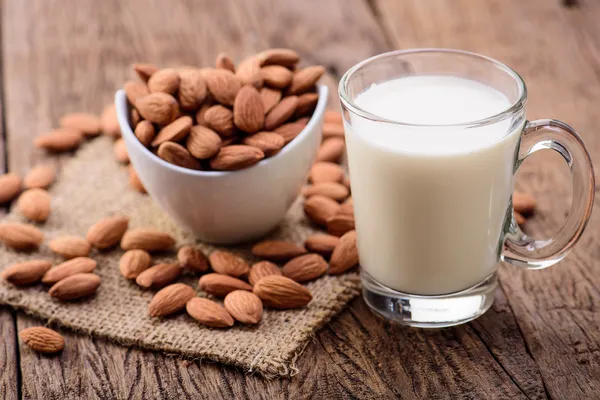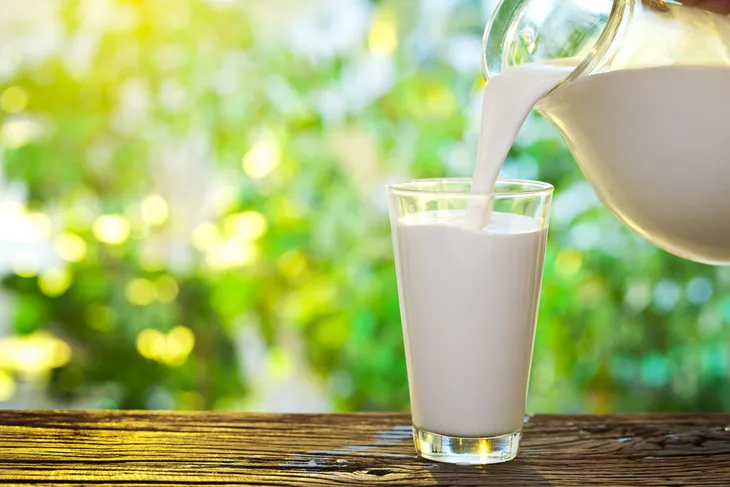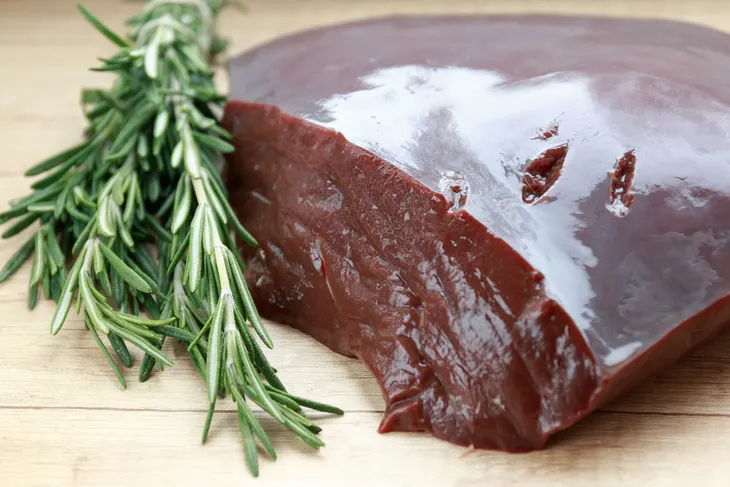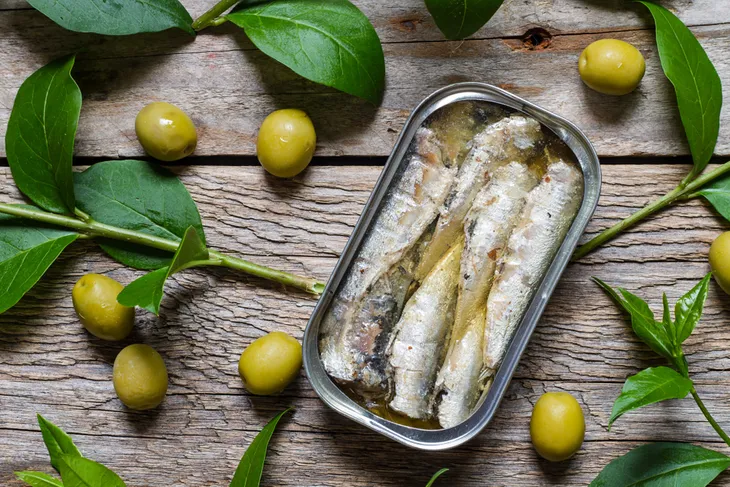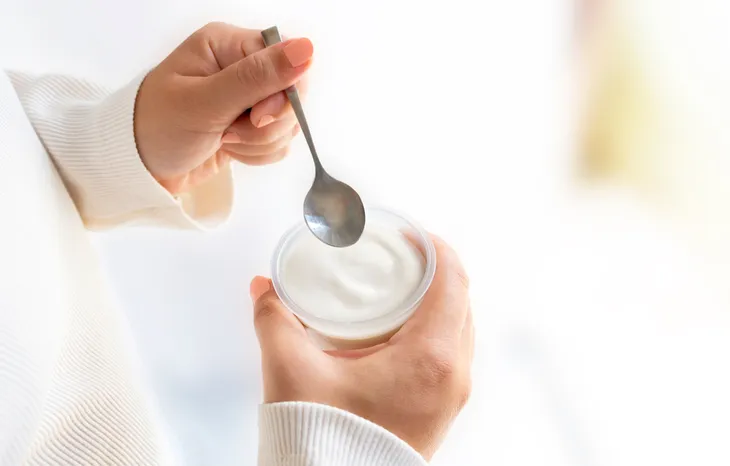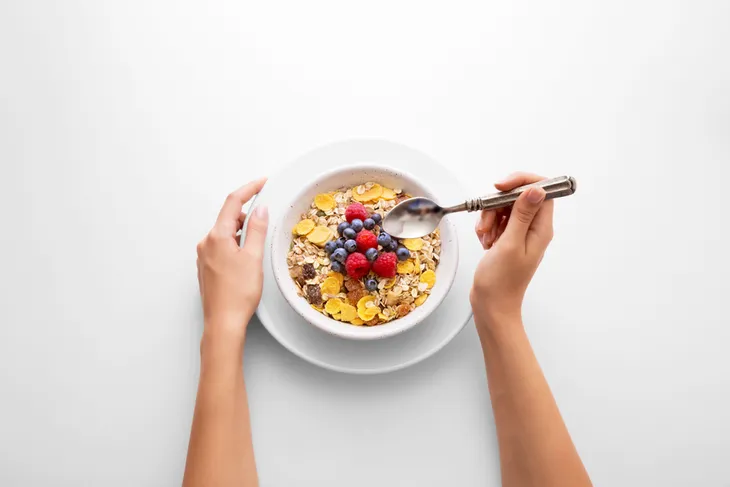Did you know that a woman’s ability to absorb the vitamin B12 gradually decreases with age? In fact, research from the American Journal of Clinical Nutrition claims that 4-percent of females between the ages of 40 to 60-years old suffer from a B12 deficiency. Combine age with certain prescription medications (i.e., for heartburn) and a lack of meat in your diet (i.e., especially for vegetarians or vegans) and you could find yourself sorely lacking vitamin B12.
Thankfully, there are a number of steps that you can take to deal with a diagnosed vitamin B12 deficiency.
*Think you may have a Vitamin B12 Deficiency? Consider purchasing Amazon’s best-selling Vitamin B supplement (rated 4.5 stars with over 1300 consumer reviews): NatureMade Super B Energy Complex.
Want ActiveBeat Diet & Nutrition content delivered straight to your inbox? Sign up for our exclusive newsletter now!
Let’s take a look at all the important warning signs of a B12 deficiency, plus the common causes, symptoms, treatments, and B12 boosting foods to eat…
1. Dizziness
Frequent bouts of dizziness or vertigo can often be a signal that your B12 stores are low. For instance, you may experience a feeling of being wobbly when you get up too fast from a sitting position. Most often, people will notice the onset of dizziness suddenly when either changing positions from sitting to standing or right after they have experienced a significant amount of physical activity.
Those low in B12 may also feel dizzy when they walk up or down stairs, which can be quite dangerous. Chronic bouts of vertigo should be brought to your doctor’s attention so they can test you for B12 deficiency.
2. Pins and Needles
It’s very common to experience pins and needles if you sit cross-legged for far too long. However, pins and needles (or the feeling of numbness) throughout the body when you haven’t compressed any part of your body, can indicate a B12 issue.
Numbness or the feeling of electric shock waves can be the result of nerve damage in B12 deficient patients. Nerve issues in the body can be traced back to low oxygen levels, due to poor red blood cell production, which the B12 vitamin largely affects. The uncomfortable feeling of pins and needles could also be related to a number of other potential issues including reduced blood supply or dehydration.
3. Pale Complexion
Sure, the idea of vampires may seem irrational. However, the concept that vampires are pale while suffering with a craving for blood sort of makes sense. After all, creatures of the night lack the vitamin B12.
Those with B12 deficiency often have a pale complexion due to a lack of red blood cells. And those lacking in red blood cells often become ghostly in hue because they release excess bilirubin, which zaps those rosy cheeks and leaves behind a pale, yellow visage.
4. Forgetfulness
Sure, we all have “brain farts,” which is what I often refer to when I frantically look for my glasses even though they’re perched on top of my head. Let’s face it – we have all been there! However, chronic and uncharacteristic forgetfulness may indicate a deeper medical issue, particularly if you are noticing an increased trend of forgetfulness that you are beginning to become concerned about.
Many patients suffering from B12 deficiency even jump to the conclusion that they have early onset dementia or Alzheimer’s, especially if you are in your senior years. The good news here is that a simple blood test from your doctor can diagnose B12 deficiency, and a supplemental regimen can have your sharp-memory back in focus in no time!
5. Unexplained Fatigue
A night of good sleep followed by a day of yawns and dragging your feet can be common for many. However, if that fatigue is felt for days—even though you regularly get a good night’s sleep—your fatigue (combined with other already mentioned symptoms) may be the result of a B12 deficiency.
Researchers from the Academy of Nutrition and Dietetics claim that those who feel zapped of energy even though they get plenty of zzzzzzzzs may be experiencing low B12 levels. This is due to lack of red blood cell production, which is one of B12s responsibilities. Lack of red blood cells means oxygen transport to your organs is lacking, which is what can cause extreme fatigue.
6. Vision Issues
No, there isn’t something in your eye causing the spotting, blurred and double vision. In fact, low B12 stores over the long term can lead to vision changes and actually damage vision.
Retinal damage can result if blood vessels in the eye become blocked. As a result you may experience light sensitivity, blurred or double vision, tracers or shadows, which all result from damage to the optic nerve. Luckily, B12 supplementation can restore full vision.
7. Muscle Weakness
If you go from bench pressing 100-pounds to struggling with picking up your laundry, you may be suffering from a lack of B12 vitamin. B12 is relied on for oxygenation of organs… and muscles.
As a result of lack of vitamin B12 and insufficient oxygenation to muscles, sluggishness and uncharacteristic muscle weakness may result. Suddenly an individual who could carry 5 bags of groceries for 4 blocks will struggle if their purse or gym bag is too heavy.
If you feel the onset of sudden weakness from time to time and aren’t suffering from a flu or cold, it is probably a good idea to speak to your doctor and to ask if your B12 levels could be a potential cause.
8. A Smooth Tongue
Interestingly, 50% of people who have a B12 deficiency lose the little bumps on their tongue! These little bumps – called papillae, contain taste buds. Oftentimes, for those suffering from a B12 deficiency, food will seem to have lost its taste.
For women, many have been known to lose weight because they don’t enjoy the food they are eating and eat less as a result.
9. Mood Changes
Vitamin B12 is very important to mental health and may affect an individual’s mood in the state of a deficiency, causing anxiety or even depression. The reason being is that B12 is required in the production of the “feel good” chemicals such as serotonin and dopamine which keeps our brain functioning properly. Without enough serotonin and dopamine, depression may occur.
Additionally, B12 deficiencies are known to reduce the amount of oxygen available for the neurons in the brain. If there isn’t a sufficient amount of oxygen in the brain, the neurons won’t be able to transmit signals through your body properly which may result in mood changes or depression.
10. Stomach Discomfort/Infrequent Bowel Movements
Having an upset stomach or constipation issues, may not be the result of something you ate. Vitamin B-12 is important for the function of red blood cells and assists in the production of hemoglobin which carries oxygen in the blood.
With a deficiency, this could lead to pernicious anemia in which your blood isn’t able to carry oxygen to your tissues, causing symptoms of nausea, diarrhea or difficult bowel movements.
11. Heart Palpitations
As just mentioned, a B-12 deficiency can sometimes lead to pernicious anemia. And one symptom of this type of anemia is heart palpitations. According to Livestrong.com, they “may occur when your heart begins to beat faster than 100 beats per minute or you experience an early beat, and they may be felt in the throat, chest or neck.”
With anemia, there is a lack of red blood cells and hemoglobin in the blood, resulting in the cells throughout the body not getting a sufficient amount of oxygen. Because of this, the heart needs to pump harder than normal in order to transport the necessary amount required for optimal functioning of the organs, resulting in palpitations.
12. Shortness of Breath
Another symptom of pernicious anemia, caused by a B-12 deficiency, is shortness of breath. Similarly to heart palpitations, shortness of breath occurs because of “the decreased capacity of the blood to carry oxygen,” says eMedicineHealth.com.
A shortage of red blood cells and hemoglobin make it more difficult for the blood to carry oxygen from the lungs to the rest of the body. As a result, the lungs have to work harder to meet the body’s oxygen requirements, leading to shortness of breath.
13. Swollen, Red Tongue
As mentioned earlier, a large number of people with a B-12 deficiency develop a smooth tongue. But that’s not the only way the tongue can be affected. According to Healthline.com, the tongue may also become inflamed, a condition known as glossitis.
With glossitis, the source says “your tongue changes color and shape, making it painful, red and swollen,” which can affect the way you eat and speak. In addition to glossitis, a B-12 deficiency can cause other oral symptoms such as “mouth ulcers, feelings of pins and needles in the tongue or a burning and itching sensation in the mouth.”
14. Difficulty Walking
If left untreated for an extended period of time, a B-12 deficiency can cause damage to your nervous system, which may affect the way you walk and move. Healthline.com indicates that it may also “affect your balance and coordination, making you more prone to falling.”
While these symptoms can occur in younger people, the source says it is “often seen in undiagnosed B12 deficiency in the elderly, as people over the age of 60 are more prone to a B12 deficiency.”
15. Skin, Hair, and Nail Problems
Vitamin B12 plays an important role in the health of your skin, hair, and nails. As such, if you’re not getting a sufficient amount of it, they are likely to suffer. As mentioned earlier, a B12 deficiency may result in a pale or yellowish complexion, but it can also lead to vitiligo, “a pigmentation disorder which causes white patches to develop on your skin,” defines CureJoy.com.
The source adds that you may also experience other skin problems, such as acne, dermatitis, hyperpigmentation, and skin lesions. Additionally, hair may become prematurely grey or fall out, and nails may take on a brown-gray color.
Causes and Risk Factors
16. Possible Medical Causes of Low B12
WebMD says age can be a factor, as it can become more difficult for the body to absorb B12 as your age progresses. But other possible causes according to the source include atrophic gastritis (thinning of the stomach lining).
Pernicious anemia – which can result from loss of stomach cells, possibly from an autoimmune response – can make it tougher for your body to absorb B12, as could immune system disorders such as Graves’ disease or lupus, it adds.
17. Crohn’s Disease and B12
If you’ve had surgery related to Crohn’s disease, an autoimmune disorder of the small intestine, then you may be missing an important component of your digestive system that’s important for B12 absorption, explains EveryDayHealth.com.
The source says the vitamin is absorbed by the terminal ileum at the end of the small intestine, which is a “very common site of Crohn’s disease.” If you can no longer absorb B12 through pill form supplements, then you’ll need monthly injections, a weekly nasal spray, or even a patch that is relatively new, it notes.
18. Side Effects of Birth Control
Scientific American explains that birth control pills – used by more than 10-million women in the U.S. – can deplete your body of certain vitamins, including B12. “And because contraceptives are often taken over extended periods of time, even subtle effects could add up,” it adds.
According to the source, birth control pills can also rob your system of B6 and folic acid, as well as vitamin C, magnesium, and zinc, which all play an important role. Hormone replacement therapy can have the same impacts.
19. Drinking Away the B12
If you’re taking in large amounts of alcohol, you may be limiting how much B12 gets absorbed into your system. SFGate.com explains that alcohol irritates the mucus lining of the stomach and intestines, and when it does this, your body produces less hydrochloric acid leading to reduced B12 absorption.
It explains that “alcohol not only impairs nutrient absorption by damaging the lining of the gastrointestinal system, but it also prevents nutrients from being fully utilized in the body by altering their transport, storage and excretion.” Also, when you produce less acid, you can end up with more intestinal bacteria that thrive on B12 – which basically means you’ll have more hungry mouths to feed, with less B12 available to actually benefit you.
20. Vegetarians and Vegans are Vulnerable
Most of our vitamin B12 comes to us through animal products, from eggs and shellfish to meat and dairy. If you cut those items out of your diet, there’s a good chance you won’t get enough vitamin B12, which means you could start feeling very tired or even light-headed.
If you’re a vegetarian or vegan, be sure to take a vitamin B12 supplement. You can also try eating foods that have been fortified with vitamin B12, such as breakfast cereal.
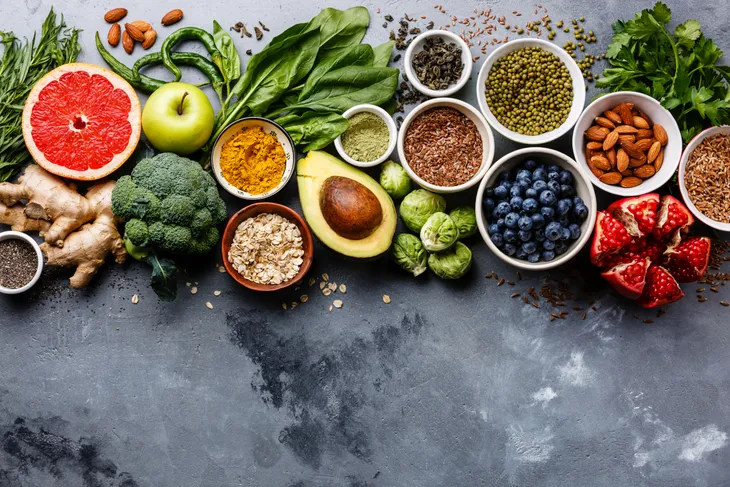 Natalia Lisovskaya/Shutterstock
Natalia Lisovskaya/Shutterstock21. Older Adults are at Risk
Anyone can suffer from a vitamin B12 deficiency, but your odds of having this serious health problem go up significantly if you’re over the age of 50. That’s because your stomach produces less acid as you age, which means you’re less able to absorb vitamin B12.
That makes it crucial for older adults to seek out foods with lots of vitamin B12, such as dairy and eggs. If the problem is severe, consult a doctor who may recommend supplements or even vitamin B12 injections.
22. Heartburn Drugs Can Increase Your Risk
The Mayo Clinic explains the drugs you take to control your heartburn may inadvertently also be controlling your B12 levels. The source says some studies have drawn a link between prescription heartburn medications and a B12 deficiency. These drugs that treat gastroesophageal reflux disease (GERD) suppress stomach acid, which has been suspected in blocking B12 absorption, adds the source.
If you’re taking prescription medication for heartburn and find yourself feeling weak, tired, or light-headed, talk to your doctor about a possible vitamin B12 deficiency. Regular supplements can help overcome this condition.
23. B12 Deficiency Closely Resembles Dementia
Because our bodies produce less stomach acid as we age, our bodies become less adept at absorbing vitamin B12. That means many people over the age of 50 suffer from vitamin B12 deficiency, which can leave one feeling overly tired and light-headed.
Furthermore, many people who suffer from vitamin B12 deficiency suffer from neurological problems, like dementia. The result is that many people confuse the deficiency with dementia. If you’re an older adult and find yourself in this position, talk to your doctor to clarify the situation.
24. Expecting and Nursing Women Need it the Most
Everyone needs vitamin B12, but certain people, like seniors, need it more. According to experts, no one needs more vitamin B12 more than expecting and nursing women, who require 2.8 micrograms every single day. By comparison, men require 2.4 micrograms.
So, how can pregnant and nursing women get enough vitamin B12? There’s 0.6 micrograms in a single egg and 1.2 micrograms in a single cup of low-fat milk. Better sources are meat–like trout, turkey, and beef–which means vegetarians and vegans may require a supplement.
Prevention and Treatment
25. Damage Could Be Permanent
While in most cases symptoms of a vitamin deficiency can be reversed when you start getting the right amounts of that particular vitamin, there could be long-lasting damage if your B-12 deficiency isn’t tended to.
The NHS in the UK explains that a lack of B12 can cause neurological issues from vision loss or memory loss, but can also cause loss of physical coordination (affecting speech and walking), a condition called ataxia. It can also cause damage to the nervous system, particularly in the legs, called peripheral neuropathy, it adds. “If neurological problems do develop, they may be irreversible,” it warns.
26. Correcting a B12 Deficiency
If you have a serious deficiency in B12 that’s been confirmed by a doctor, there are generally 2-ways to fix it – weekly injections of B12 or daily “high-dose” B12 pills, says Harvard Health.
If you have a milder deficiency without some of the more alarming symptoms that we’ve mentioned, then a standard multivitamin is probably enough to take care of the deficit, it adds.
27. Preventing a B12 Deficiency
Of course, the best course of action is to not let your B12 levels get so low that they start to impact your health. Harvard Health says in most cases, a deficiency of this vitamin can be avoided with a daily multivitamin that delivers 6 mcg (which is more than enough).
If you’re a vegan or vegetarian, also make sure your cereals and other grains have been fortified with B12 (if you’re not taking the multivitamin.) If you’re 50-or older, you may also want to consider a supplement, as your body may not be getting enough from food alone, it adds.
*Think you may have a Vitamin B12 Deficiency? Consider purchasing Amazon’s best-selling Vitamin B supplement (rated 4.5 stars with over 650 consumer reviews): NatureMade Super B Energy Complex.
Foods That Pack a Vitamin B12 Boost
28. Beef
Health.com lists good ol’ beef as one of the best sources of B12 out there. Not only is beef delicious, it offers about 1.3-micrograms of B12 in 3-ounces of broiled top loin sirloin, according to the source.
The site adds that beef is also a great source of zinc (7-milligrams per 3-ounces), which is also important for certain functions of the body. As an added bonus, you’ll get a healthy dose of protein and riboflavin. However, it’s high in cholesterol, so don’t overdo your portions, it adds.
29. Turkey
Who doesn’t love a good turkey – at least twice a year? You may want to consume more of this delicious bird when you know that it delivers 48.2-micrograms of B12 per cup, according to Good Housekeeping.
However, turkey is another meal you may not want to overdo – it contains tryptophan, an amino acid associated with making you feel sleepy (which is sort of in competition with the benefits of B12). However, other sources point out the tiredness may not be from the tryptophan – it can just be from consuming too much food.
30. Fortified Almond/Coconut Milk
If you’re vegan or vegetarian, the first two options aren’t going to appeal to you very much. In fact, sources note that many vegans aren’t getting enough B12 (and should consider supplements), but can avoid problems through eating B12 fortified foods – and other sources like fortified non-dairy milk.
Oldways lists some popular vegan vitamin B12 sources, including fortified almond milk and fortified coconut milk, both of which can deliver 3-micrograms of B12 per cup. Meanwhile, soy milk fortified with the same vitamin may only deliver 1.2-micrograms per cup depending on the product.
31. Dairy Milk
Low-fat dairy milk will deliver about 1.2-micrograms of B12 per cup as well, according to Health.com. The other advantages of low-fat milk is that it packs calcium and vitamin D, and could even help women avoid PMS symptoms, according to the source.
It points out that a study found women who consumed “more than one” serving of high-fat dairy were significantly less likely to experience ovulation problems. Anyways, back to the topic – if you don’t like milk on its own, try it in a smoothie with frozen fruit and ginger, suggests Health.com.
32. Shellfish
There are a handful of shellfish that deliver a healthy punch of B12, so we’ll group them altogether here. For example, clams rank high for B12, potassium, and iron, according to Good Housekeeping, which calls clams a “surprising king of the superfoods.”
Then there are oysters, a “top source” of B12 and also high in iron, and crabs (which fall under the crustacean category), which apparently contain 9.8-micrograms of B12 per 3-ounces (which is significantly more than beef). “If you buy red and blue king crabs, look for ones from the U.S,” notes the site. Mussels also rank very high on the B12 hierarchy.
33. Eggs
If you’re not a meat eater, you may still enjoy some eggs now and then – not only are they delicious and versatile for a variety of recipes and styles, they’re a great source of vitamin B12. How great? Livestrong.com breaks it down for you.
The source explains that one large egg contains 0.45-micrograms of B12, which translates to 19-percent of the daily-recommended intake. Of course, as you might imagine, if you go for the extra large or jumbo variety of eggs, you’ll get a bigger hit of the essential vitamin. Eggs are also a great way to get protein you may be missing from meat.
 Shutterstock/Sea Wave
Shutterstock/Sea Wave34. Salmon
Fish are swimming with B12, and salmon ranks high on the list. Health.com notes that 3-ounces of salmon contains about 4.8-micrograms of the vitamin. It’s also high in protein and omega-3 fatty acids, which are beneficial for your heart.
The source adds that one 3-ounce serving of salmon will deliver more than your daily need of vitamin D, which is normally absorbed from sunlight. “To maximize salmon’s many health benefits, experts recommend baking it in the oven or grilling it instead of eating it fried, dried, or salted,” notes the source. Haddock, trout and tuna are great (and possibly less expensive) B12 alternatives to salmon, it adds.
35. Swiss Cheese
While some foods are full of holes when it comes to B12 content, Swiss is apparently the best source in the cheese kingdom. Healthaliciousness.com lists Swiss cheese as one of the top five natural vegetarian sources of this vitamin.
The delish Swiss variety provides 3.34-micograms of B12 per 100-grams, while gjetost, mozzarella, tilsit and feta are the next best sources of the vitamin (in that order). How about cheddar you ask? It ranks on the lower end of the cheese scale for B12, at 0.24-micrograms per ounce (28-grams).
36. Liver and Kidneys
Okay, so maybe these aren’t everyone’s favorite main dishes – but Healthline notes that they’re “some of the most nutritious foods out there.” It says liver and kidneys from lambs in particular will deliver a healthy punch of vitamin B12.
In fact, it notes that a single 100-gram serving of lamb liver provides 1,500-percent of the recommended daily intake of B12. It adds that lamb liver is also rich in copper, selenium, as well as vitamins A and B2. The kidneys of lambs, veal and beef are also very high in B12 (more than 1,300-percent of the required daily quota), it notes.
37. Sardines
These little fish retrieved from salty waters can be bought fresh or canned in water or oil, and are “super nutritious because they contain virtually every single nutrient in good amounts,” says Healthline.
Of course, one of those goodies hidden inside sardines is vitamin B12. A 150-gram (1-cup) serving of these saltwater dwellers provides more than double the recommended daily intake of this vitamin, adds the source. You’ll also get the added benefit of omega-3 fatty acids, linked to improved heart health.
38. Yogurt
According to a site called Yogurt in Nutrition with a clear lean towards the benefit of yogurt, this creamy dairy product not only has vitamin B12, but it also allows it to be more easily absorbed by your system than other sources.
It claims the absorption of B12 from eggs is less than 9-percent, and that number jumps to 42 to 61-percent for meat and fish. However, milk products (including yogurt) apparently have the highest absorption of the bunch, at between 51 to 79-percent. “Numerous studies show a positive correlation between milk product consumption, especially milk consumption, and vitamin B12 intake and blood levels,” it adds. Also, yogurt contains probiotics, which are essential for a healthy gut.
39. Fortified Cereal
If you like to start your day with some cereal, then you might want to choose a brand that fortifies their product with B12, says Healthline. “Research shows that eating fortified cereals daily helps increase vitamin B12 concentrations,” it adds.
Vegans and vegetarians may especially appreciate this option, as the source points out this form of B12 is synthetically produced and not from animals. Add in some of that fortified almond or coconut milk as a substitute to dairy, and it’s a win-win! Just make sure that when you find a fortified brand, it’s not also loaded with sugar, warns the site.
Think you have a Vitamin B12 Deficiency? Boost your intake with Nature’s Bounty Vitamin B-12 Supplements.











